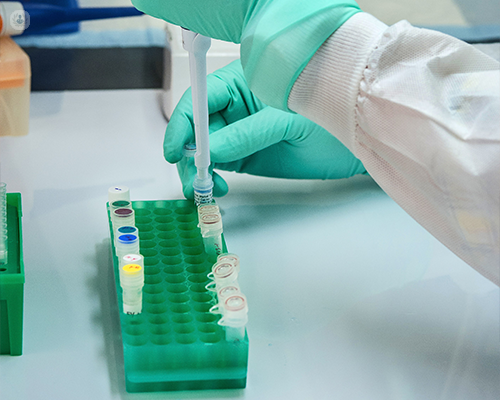Pancreatic cancer: The race to research an early detection test
Autore:Pancreatic cancer currently has no test available for early detection. However, research is underway to develop a much-needed test that will greatly improve the chance of survival of patients with pancreatic cancer.
Mr Deepak Hariharan, a consultant general and hepato-pancreato-biliary surgeon, is one of the specialists who are participating in this research. He explains why a test for the early detection of pancreatic cancer is so important and how such a test could work.

What is the current general outcome of pancreatic cancer?
Pancreatic cancer is a dreaded cancer with highly aggressive tumour biology. It is detected late in more than 90 per cent of cases, which is when effective curative surgical treatment is not possible. Ultimately, this leads to poor survival outcomes.
Is it possible to detect early pancreatic cancer?
Currently, there is no test available that can pick and detect pancreas cancer early.
Can you tell us about your research for pancreatic cancer detection?
The need for early detection to improve survival in pancreatic cancer led me to research novel urinary protein signatures. I discovered unique urinary proteins that potentially set apart early pancreas cancer in humans using urine. Urine could be incredibly useful because it is a bio-medium (a substance that is routinely excreted) that can be obtained in a non-invasive way and in plenty.
My seminal research work was undertaken as part of a pancreas cancer research group led by Professor Lemoine and Professor Crnogorac Jurcevic at Barts Cancer Institute, London. It laid the foundation for the development and design of a suitable test in humans using urine.
This work is currently underway and I remain hopeful that, in time, high-quality evidence is generated to design, develop and implement a urine test that will detect early pancreas cancer in human beings. This will allow for effective treatments (early curative surgery alongside chemotherapy) to be administered, thereby improving survival from this dangerous disease.
I have been privileged to be part of the Pancreas Cancer Research Group as our work has featured in the news articles by Sky News and the BBC.
How does the test work?
The research tests are currently being conducted in large research laboratories using mass spectrometry. This technology and technique are currently not suitable for population-based routine testing. However, it is envisaged that in time, an antigen-antibody test that is cheap, easy to use and highly sensitive, is made available to aid detection of early pancreas cancer.
How can this benefit patients?
Currently, less than 10 per cent of patients receive an early diagnosis. The advantages of early detection of pancreas cancer would enable large numbers of patients to have early curative surgery and ultimately, improve their survival and quality of life.
What other ways are there of diagnosing pancreatic cancer?
There is no existing test that can consistently and convincingly detect pancreas cancer early. There is a reliance on patients getting symptoms (often painless jaundice and weight loss), and reporting it to their doctors or hospitals where a CT scan or invasive endoscopy tests are used to detect pancreatic cancer.
We know from data that waiting for symptoms to develop means that it’s often too late and the cancer is less responsive to effective curative treatments.
Who is the ideal candidate to undergo pancreatic screening tests?
Based on the evidence, people who have a strong family history of pancreas cancer are recommended to undergo tests which may include CT scans and MRI scans of the pancreas along with an endoscopic assessment of the pancreas.
In the absence of family history, those who develop unexplained and painless jaundice, weight loss or sudden onset diabetes, are advised to seek medical help to undergo the previously mentioned tests to rule out pancreas cancer.
What is the main curative treatment of pancreatic cancer?
The main evidence-based curative treatment is surgery with chemotherapy being administered after the surgery. In some cases, chemotherapy may also be administered before surgery.
Learn how Mr Hariharan can help you here.


